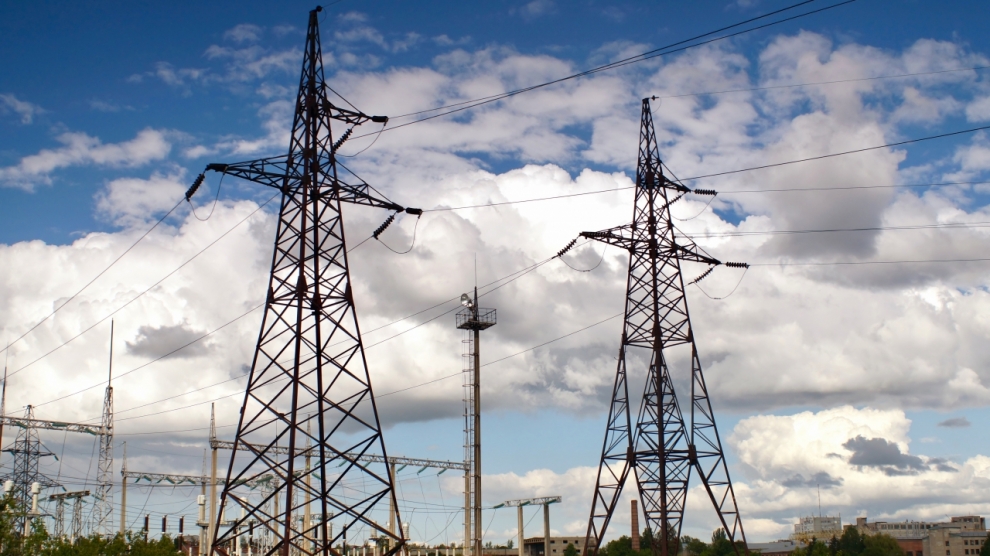Ukrainian Prime Minister, Volodymyr Groysman, vows to restart privatisation, which is a strict condition of the next bailout tranches granted by the International Monetary Fund (IMF), for the autumn of 2017. That is why the government has pledged to sell the Odessa Portside Chemical Plant as well as the shares in eight regional electricity suppliers.
“It is clear that the Ukrainian Government and the administration of the President of Ukraine are interested in privatisation,” Alexey Starodubov, the founder of UADirect, tells Emerging Europe. “
“At the same time, there is no consensus on privatisation issues within the Ukrainian Parliament. This could be a problem when it comes to implementing the plans of Cabinet of Ministers of Ukraine with regard to privatisation. It was announced by the Ukrainian Government that intensive privatisation is a request of the IMF. However, Ukrainian cooperation with the IMF is also a political issue. Due to the absence of a clear pro-Governmental majority in the parliament, this may lead to additional discussions among MPs, as well as volatility regarding the adoption of the required privatisation law,” he adds.
Earlier, in July, a new draft privatisation law was approved by the cabinet of ministers, which is a positive step towards transparent privatisation in Ukraine and good news for foreign investors.
Andriy Dovbenko, managing partner at Evris Law Firm, says that one remarkable innovation which seems to be supported by the Ukrainian Government is the subordination of the privatisation disputes over British law. “It is doubtful whether such an approach will be supported by the Ukrainian Parliament, but the determination of British law as the governing one, and consideration of privatisations disputes in a recognised dispute resolution institution such as LCIA, would apparently increase the transparency and attractiveness of Ukrainian privatisation,“ he adds.
In the meantime, 25 per cent of state-owned shares in Odesaoblenergo, Donetskoblenergo, Donbasenergo, Sumyoblenergo, DTEK Dniproenergo, DTEK Dniprooblenergo, DTEK Zakhidenergo, and Kyivenergo are still to be sold in August. According to the cabinet of ministers, the initial value of these assets ranges from €4.75 million (Donetskoblenergo) to €25.1 million (Kyivenergo).
“While it owns these packages, the state has neither proper corporate control nor dividends. The total initial cost of these packages is €135.6 million! The state will never see such dividends otherwise, especially since it does not have those billions to invest in modernisation, which these companies need as air,” Yuriy Nikitin, deputy head of the State Property Fund of Ukraine, told the UNIAN Information Agency.
The National Energy and Utility Regulation Commission intend to introduce a stimulating RAB-tariff, which could make the privatisation process a success.
“Investors’ interest is also fuelled by the long-awaited regulatory asset base (RAB) which will give them an understanding of how and when they will be able to return their investments. According to our information, by the end of August, all the necessary regulatory frameworks for launching this tariff could be approved,” Mr Nikitin added.
“We have a huge number of legal acts the govern the privatisation process, therefore there is obviously a lack of clarity and, sometimes, direct contradictions in these acts, which in turn make the privatisation procedures unclear and provide a room for manipulation,“ Evris‘ Mr Dovbenko says.
“It seems to be quite important to review the existing legislation, in order to cancel old acts and to consolidate the effective rules, to make the privatisation process consistent and transparent. Clear and easily understandable regulations will obviously add to the attractiveness of privatised Ukrainian companies,“ he adds.
There are also a lot of specific privatisation rules which should be reconsidered, e.g. setting an initial price for a privatised company, which should be market-based and should exclude any possibilities for manipulation; the requirements about announcements of the launch of privatisation processes should ensure that the potential investor can obtain a sufficient amount of objective information about the company, to be privatised, at the initial stages and the pre-privatisation procedures for small and medium companies should be simplified (e.g. allowing them to be privatised to form a limited liability company rather than s joint-stock company, which is much more complicated in terms of its set-up and further management).
UADirect’s Mr Starodubov believes privatisation in the energy sector used to be a more interesting prospective for potential foreign investors. “The recent privatisation of state-owned stakes in energy generated companies demonstrates that foreign investors are not as interested as anticipated in such enterprises. At least they are not ready to be minority partners with the current market players. The privatisation of state-owned Centrenergo will probably be more attractive for foreign investors,” he says.
“Adoption of the proper changes to laws may certainly extend as an indicator of whether the Ukrainian authorities are interested in launching mass privatisation that is open to everyone or whether the intent is to make one more distribution of state-owned companies between the local oligarchs,“ Evris‘ Mr Dovbenko tells Emerging Europe.

